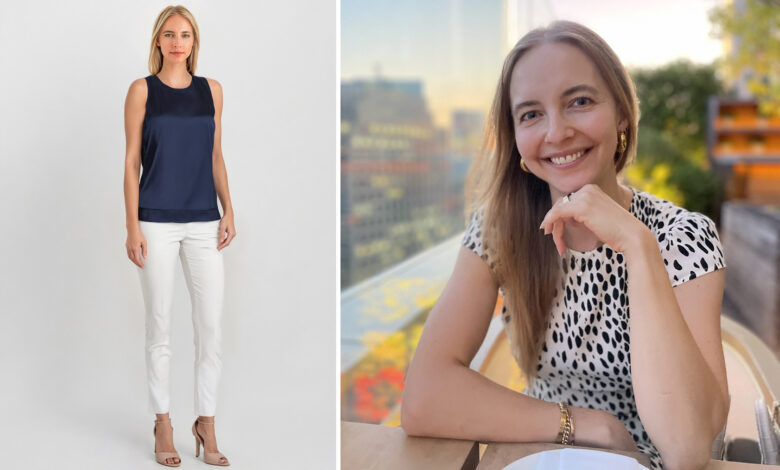Models ditch photoshoots, sell their likeness to AI

A growing number of models are ditching the “stressful” casting calls and selling their likeness to artificial intelligence platforms that generate images for fashion campaigns and e-commerce sites.
While supermodels like Kendall Jenner and Gisele Bundchen can still be found walking the runways and getting hired for photoshoots by major brands, those with less star power have been able to cash by pivoting to AI.
Andrei Burak, who models as a side hustle after moving to Los Angeles from Belarus five years ago, found the industry “super stressful” — with its long waits in casting lines, probing questions from casting directors and constant rejection, according to The Wall Street Journal.
He instead turned to AI Fashion, a startup that pays models to upload a few dozen photos of themselves in order to use their likeness in fashion campaigns and other advertisements that opt for AI-generated images.
“It’s a great opportunity,” Burak, who had landed gigs for LA Fashion Week, told The Journal.
On the AI Fashion platform, Burak can interact with brands and choose to approve or deny their offers to use his image.
If he approves, AI Fashion will be able to generate photos of him modeling that brand’s apparel.
AI Fashion is a source of passive income while he focuses on running his production company, he said.
The pay rate on the platform depends on the popularity of the brand and model, as well as the number of images that will be used, per The Journal.
AI Fashion chief Daniel Citron said the platform aims to keep models involved in the creative process and appeal to brands that have been hesitant to incorporate AI.
“At AI Fashion, we believe the future of fashion hinges on innovation that respects and elevates human talent,” Citron told The Post.
” ‘Persona’ is a testament to this belief, deeply rooted in our profound respect for the industry’s talent and legacy.”
The company — launched last year by experts from Google, Microsoft and MIT — touts that it can generate images of models in various poses, settings, lighting and clothing.
“Our advances in AI are intertwined with the invaluable insights of models and industry leaders,” Citron said. “Together, we are shaping a future that uplifts every facet of the fashion industry, making it more inclusive and dynamic for all.”
The push to use real models comes after Levi Strauss got into hot water last year over its partnership with digital fashion studio Lalaland.ai, which promised to “create digital models of people of different sizes, ages and races” for the denim giant.
Levi’s was bashed for not hiring real people from diverse backgrounds and quickly apologized, saying the images “did not properly represent certain aspects of the program.”
“We do not see this pilot as a means to advance diversity or as a substitute for the real action that must be taken to deliver on our diversity, equity and inclusion goals and it should not have been portrayed as such,” Levi’s said in a press release in March 2023.
WHP Global, whose clothing brand subsidiaries include Express, Bonobos, Rag & Bone and Anne Klein, among others, has also implemented AI as it’s increasingly made its way into the fashion industry — so much so that in April 2023 New York City’s Spring Studios played host to the inaugural AI Fashion Week.
Doug Weiss, senior vice president of digital, e-commerce and AI for WHP Global, said part of the reason it’s tapped AI Fashion is “because it is creating new opportunities for both models and brands. Keeping the human creative at the center of the process,” according to The Journal.
When fashion brand Anne Klein turned to AI Fashion, it tapped stay-at-home, Los Angeles-based mom Mikaela Kelley to star in its campaign.
Kelley told The Journal that she welcomes the opportunity to have her likeness used in AI-generated photos because it provides her the opportunity to make passive income while taking care of her children.
“AI did intimidate me, because it’s always been associated with negative impacts, like having your identity stolen,” Kelley told the outlet, noting that she had to relinquish some control by allowing a third party to decide what context to photograph her in.
Ultimately, Kelley said she signed up for the platforms because it allows her to maintain her autonomy with the ability to turn down any campaigns she feels are too edgy or too revealing, for example, or otherwise pictures her in a way she doesn’t feel comfortable being represented, according to The Journal.
Leticia Jacobson, who was also chosen for Anne Klein’s pilot AI project, said that seeing an AI-generated photo of herself for the first time “was a little bit of an out-of-body experience,” per The Journal.
However, Jacobson doesn’t have plans to leave the platform anytime soon as “AI is sort of an inevitable part of our lives with each passing day.”
“And I think, if there’s a way to keep the human element as a part of that and actually become financially beneficial to people who partake in it, I don’t see why not,” she told The Journal.




